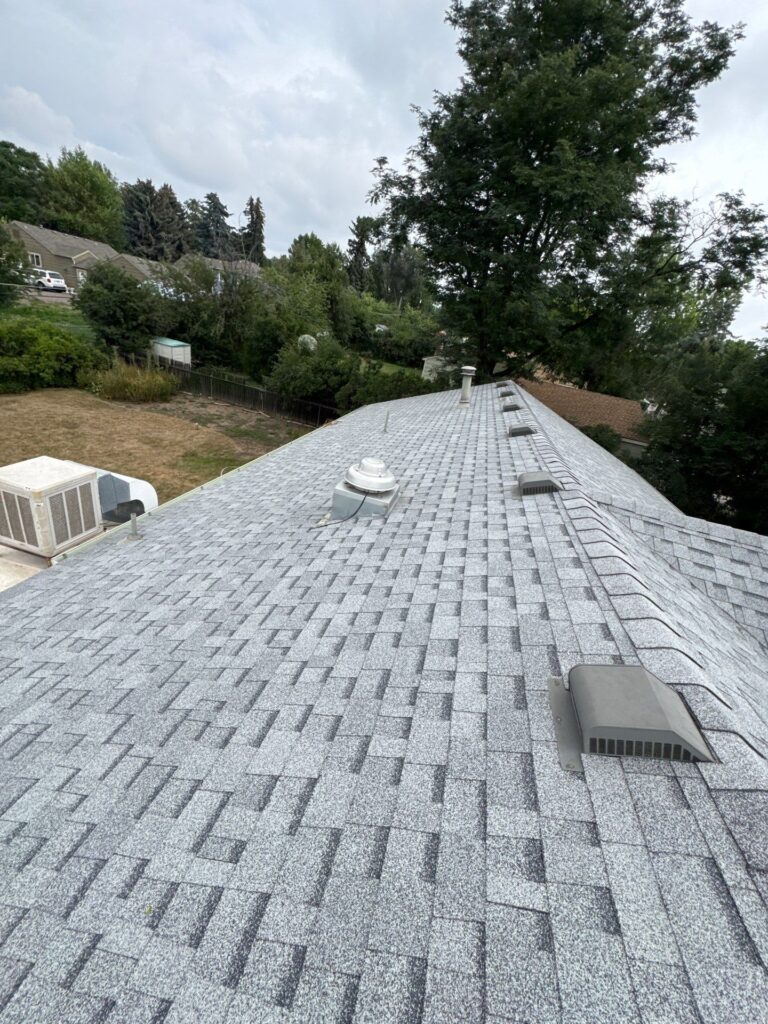
The New Weather Reality in Denver, Colorado
Denver’s climate has shifted noticeably in recent years. Once known for its relatively stable, dry conditions, the city now faces more frequent temperature extremes, unpredictable snowfall, and an increase in damaging weather events. Intense summer heatwaves, fluctuating winter conditions, and a marked rise in hailstorms and windstorms have created unprecedented challenges for homeowners and businesses.
These climatic changes directly impact roofing in Denver, making proactive roof care essential for protecting property value, structural integrity, and long-term safety.
How Extreme Weather Threatens Roof Longevity
Hailstorms: The Persistent Threat in “Hail Alley”
Denver sits in the heart of “Hail Alley,” where hailstones can range from pea-sized pellets to golf-ball-sized ice that can compromise even the most durable roofing materials. While severe hail damage is often visible in the form of cracked shingles or punctured tiles, smaller impacts can cause hidden structural weaknesses that lead to costly repairs later.
Routine inspections after hail events are critical for detecting subtle damage before moisture intrusion accelerates deterioration.
High Winds: Silent Roof Destroyers
Windstorms in Denver have become more frequent and more severe. Strong gusts can lift shingles, damage flashing, and even peel away roof sections, exposing the structure to water infiltration. High winds also accelerate wear on older roofing systems, making timely maintenance more important than ever.
A professional inspection after major wind events can reveal vulnerabilities that might otherwise go unnoticed until leaks appear.
Rapid Temperature Swings and Material Fatigue
Denver’s climate is notorious for dramatic temperature changes within hours. These shifts cause roofing materials to expand and contract rapidly, weakening seals, fasteners, and underlayment over time. Without preventative care, this thermal stress can shorten a roof’s lifespan by years.
Proactive Strategies for Protecting Roofing in Denver
Seasonal Roof Inspections
Conducting inspections in both spring and fall ensures that roofs are prepared for extreme summer heat and harsh winter snow. These assessments can identify minor wear before it escalates into significant damage.
Upgrading to Impact-Resistant Materials
Modern roofing technologies offer materials specifically designed to withstand hail impact and wind uplift. Class 4 impact-rated shingles and reinforced metal roofing are excellent options for Denver’s volatile climate.
Timely Roof Repairs and Maintenance
Small repairs—replacing damaged shingles, resealing flashing, and clearing debris—are significantly more cost-effective than full roof replacements. Maintenance prevents small weaknesses from becoming major failures during storms.
Choosing the Right Roofing Company in Denver, Colorado
With climate-related risks increasing, selecting an experienced and reliable roofing partner is vital. Tried and True Roofing, based in Denver, Colorado, delivers expert roof inspections, repairs, and replacements tailored to the region’s unique weather conditions. Their familiarity with insurance claim processes and commitment to high-quality materials ensures long-term protection for homeowners.
CONCLUSION
Denver’s changing climate demands a shift in how property owners approach roof care. From hail and high winds to rapid temperature changes, these environmental pressures require strategic planning, quality materials, and professional maintenance. By investing in preventive measures and partnering with trusted roofing experts, homeowners can protect their properties against the unpredictable forces shaping Denver’s future.

